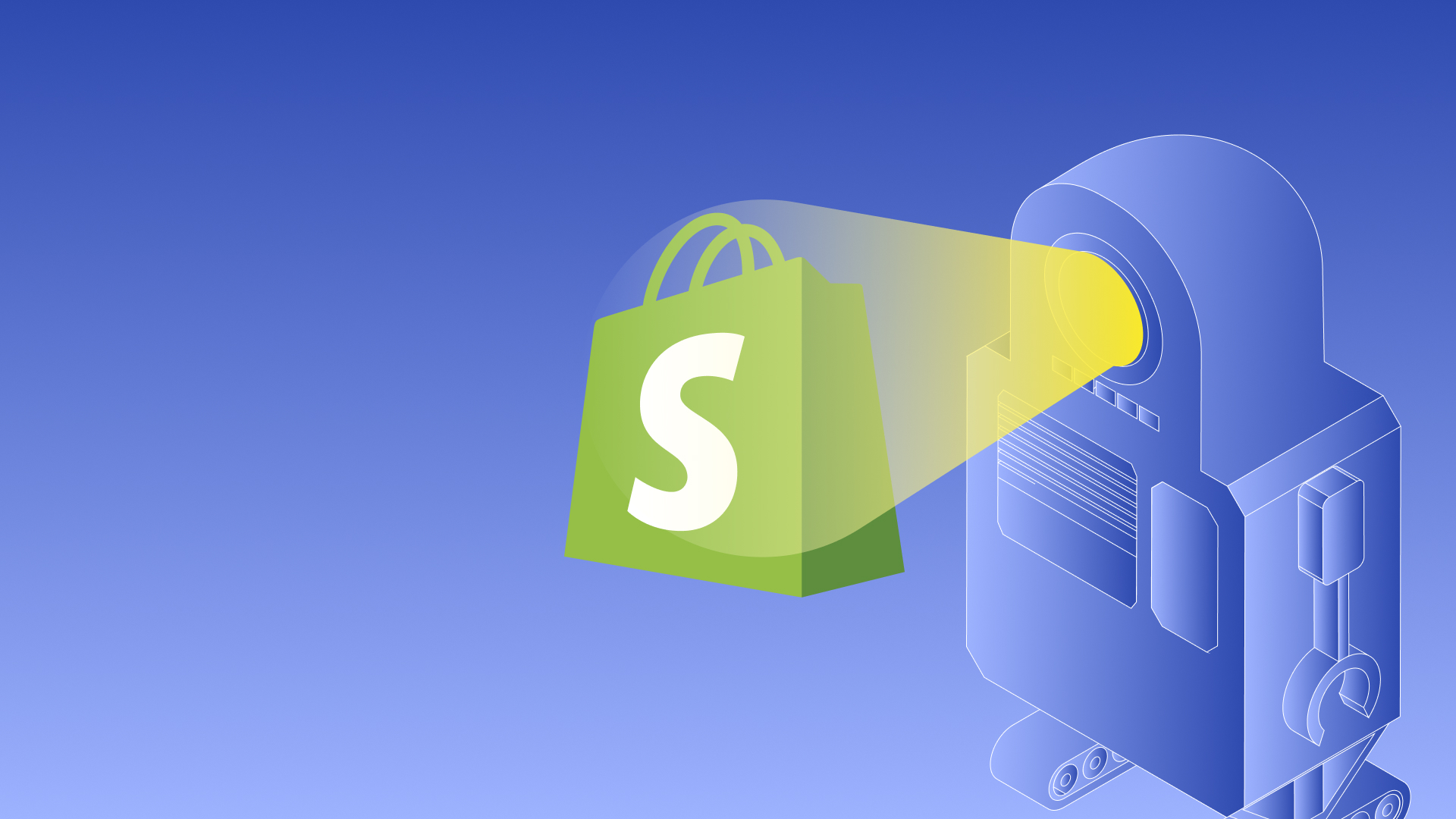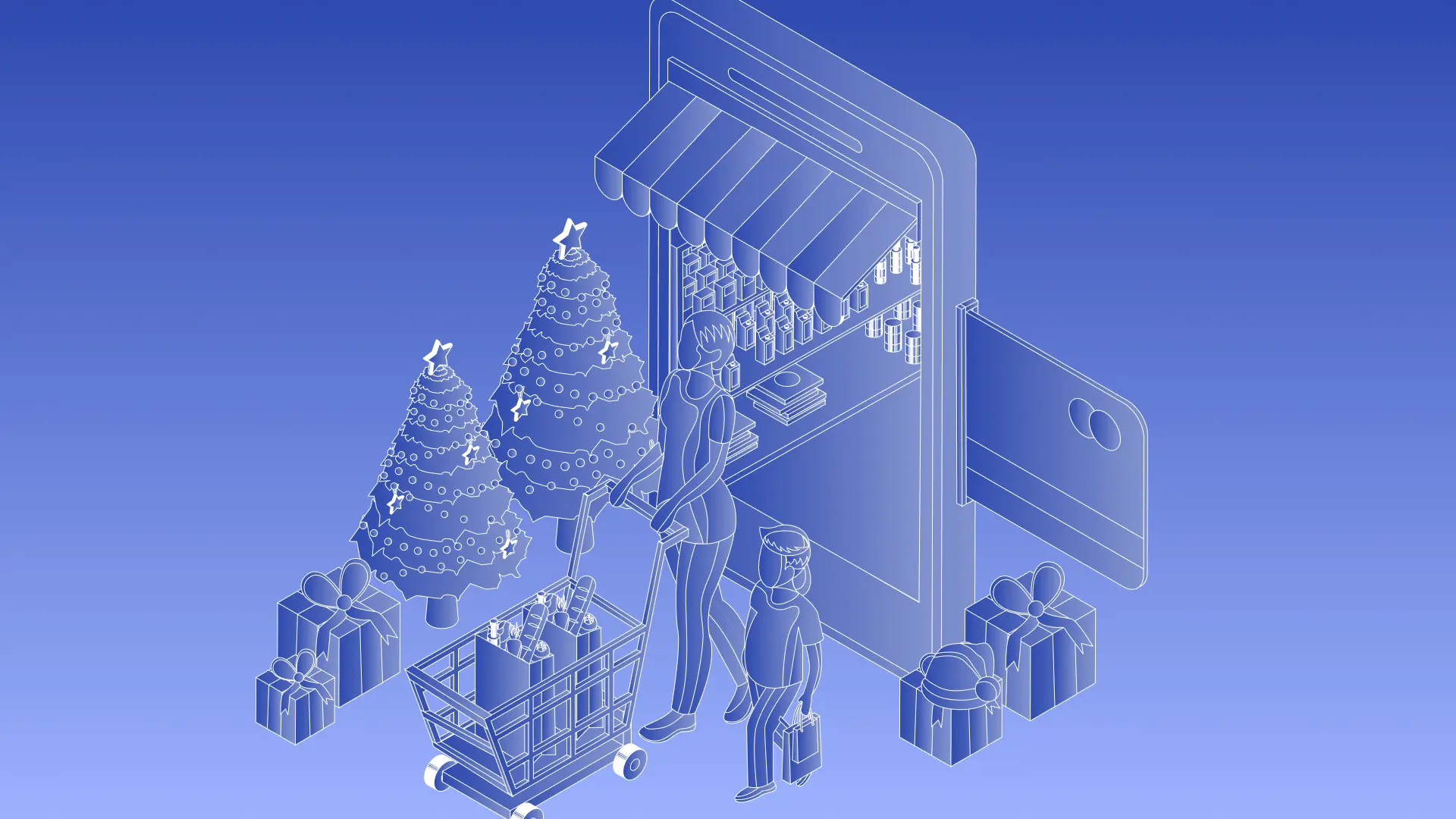Leveraging AI Apps For Shopify Store In 2024
- Shopify
- AI
- Apps
Launched
November, 2024

Introduction
Shopify has been dominating and shifting the world of e-commerce ever since the pandemic. By giving small and medium-sized businesses a chance to progress in the e-commerce landscape, Shopify has managed a revenue of more than $200 billion in 2023 alone. To keep up with this developing space, store owners need to stay ahead of the game and are increasingly turning to AI apps.
AI has been revolutionizing the online business experience through automated processes. The trend of AI didn’t leave Shopify behind. We all know of chatbots on store websites, but it goes beyond that by improving the customer experience and optimizing marketing strategies for stores. Leveraging AI apps for Shopify stores isn’t just a choice anymore; it’s an important and urgent step.
We’re here to guide you through that. This article will take a dig at the best AI apps for Shopify and in what ways you can build a more efficient business.
Understanding the Role of AI in E-commerce
Like anything, AI started out pretty modest with a few auto-generated emails, but as machine learning grew and continues to grow, so do the implications of AI in your business. You need efficient processes and quick results, so take AI as your personal assistant in that. Shopify AI app features play a critical role in streamlining processes and improving business performance.
There are several categories of AI apps available for Shopify, including tools for customer service, product recommendation, demand forecasting, etc. The uses go beyond improving the customer experience alone and optimizes internal processes too. AI machine learning tools analyze customer data in real time and provide solutions about which products are doing well or suggestions regarding the future growth of certain products.
As AI usage doesn’t seem to be stopping and is actually quite beneficial, Shopify store owners must integrate these great tools into their apps and streamline processes. From customer recommendations, marketing campaigns, and analytics, to inventory management, customer churn insights, and supply chain management. Your store can cover all fronts with a little AI guidance.
Best AI Apps for Shopify
With so many possibilities in the market now, you must be wondering “What are the best AI apps to use for Shopify?” That depends on a few things, but if you know your business needs and do a little research, you can make the best of it. Here are the uses we recommend.
Chatbots and Virtual Assistants
The quick step to improving customer service in your Shopify store is through the use of live chat bots which assist your customers throughout the process of buying from you. The 24/7 availability makes them a perfect fit for anyone even outside of business hours.
Apps like Gorgias , Tidio , and Shopify Inbox are used for this. Shopify inbox is the own personal Shopify AI whose main concern is to turn general browsers into buyers. Ultimately, you can improve customer retention too.
AI Marketing Campaigns
Integrating AI tools into social media apps to create marketing campaigns through apps like Adscale . Adscale uses real-time user data to create smart business insights and develop marketing campaigns.
These campaigns are used across different platforms to derive the best results. You can set up emails or messages to be sent out on a weekly basis and increase engagement with customers.
Recommendations and Personalization
Tools to understand customer behavior and purchase histories are very handy for making personalized recommendations, which makes the experience feel more personal and curated.
Apps like Limespot can segment customers and make recommendations for upselling and more. Another app like SalesRocket is particularly useful for enhancing your Shopify store for less cost.
Results show that using such Shopify AI apps can help 8 0% of customers who appreciate the personalization .
Inventory Management and Demand Forecasting
Moving to the internal and external forecasting, you no longer have to worry about out-of-stock items disappointing precious customers! Efficient management of inventory is imperative for any business, and perhaps most crucial for e-commerce businesses.
Let AI apps like Stocky do the difficult part for you while you focus on profits. Overstocking and stockout problems will be solved with accurate demand forecasting.
Analytics Tools
The real-time customer data also shows you the percentage of customers that have stopped using your products from which periods of time. You can analyze this customer churn data to see which aspects of your business to improve.
Customer Support Beyond ChatBots
While chatbots like Gorgias, Tidio, and Shopify Inbox are widely recognized for their ability to automate responses and help customers 24/7, AI in customer support goes beyond simple text interactions. Modern AI apps now offer virtual shopping assistants that mimic human-like conversations, creating more engaging, personalized experiences.
Apps like Octane AI offer advanced features such as product quizzes and interactive messaging, tailoring product recommendations based on customer responses. This dynamic interaction increases customer satisfaction while also boosting sales. By using natural language processing (NLP), these AI systems can understand complicated questions and give relevant solutions, rather than relying on scripted responses. As a result, AI improves the customer experience and solves issues faster.
In addition, AI-driven customer support systems can combine across various communication channels, including social media and email. This multi-platform support allows for seamless customer interactions, where information is shared between channels with ease. No conversations are lost and customer’s concerns are answered with ease.
This is an essential tool for e-commerce stores because it improves customer loyalty and overall satisfaction.
Tailored Shopping Experiences and AI-Driven Personalisation
Personalization has become the cornerstone of e-commerce, and AI apps are the driving force behind it. By using customer data like browsing history, past purchases, and even abandoned carts, AI tools can give hyper-personalized recommendations that are sure to increase customer engagement and sales .
Take LimeSpot as an example. This app uses AI algorithms to track customer behavior, understand and analyze it, and suggest products that are most likely to appeal to individual customers. This goes beyond simply offering ‘similar terms’. Instead, the AI models are able to predict customer preferences based on real-time data and past shopping patterns, making highly personalized recommendations that feel relevant.
Another valuable AI tool in this area is ReConvert , an app designed to optimize the post-purchase experience. Once a customer makes a purchase, this app uses AI to suggest related products that complement their order, enhancing their opportunity for upselling and cross-selling.
Incorporating such AI-based product recommendations helps Shopify store owners boost average order value (AOV) and customer lifetime value (CLV). By displaying personalized products on homepages, product pages, and checkout pages, the business creates a tailored shopping experience that feels closer to the customers and is unique for everyone.
This level of customization leads to higher conversion rates and builds stronger relationships with customers, who feel like the brand understands their needs.
As personalization becomes increasingly critical in 2024, store owners who leverage AI-driven product recommendations will see significant improvements in customer satisfaction, sales, and long-term loyalty.
Enhanced Marketing Campaigns and Smarter Ad Targeting
AI-powered marketing has been a game changer in e-commerce, and shop store owners are using it to create smarter, creative, and more efficient campaigns. By using AI apps like Adscale , businesses can automate their advertising completely and optimize it across various platforms, like Google, Facebook, and Instagram. Such apps use machine learning algorithms to analyze customer behavior, predict buying trends, and adjust ad spending in real-time or with maximum returns.
AdScale’s AI analyzes historical sales data and customer demographics to curate very targeted ad campaigns. It optimizes ad performance by automatically adjusting bids, targeting the correct audience, and using creative ways to maximize engagement. One important effect of this is that it allows store owners to focus on other aspects of the business, while simultaneously ensuring their ads reach the right customers at the right time.
AI marketing tools also specialize in predictive analysis, allowing store owners to anticipate customers' behavior and trends. By understanding historical data, these tools can forecast future demand, ensure competitive pricing, and even recommend the best time to launch campaigns. This makes sure that marketing efforts are adequate, efficient, and effective, and ultimately helps in driving higher conversion rates and revenue growth.
E-commerce presents a very competitive environment, and using AI to power the campaigns gives Shopify businesses a competitive edge. It allows for more personalized, data-driven marketing strategies that relate to customers and bring better results.
AI-Powered Inventory Management
The key to operational efficiency in any business, let alone an online business, is managing your inventory in an efficient manner. Managing inventory can be a complex and time-consuming procedure, especially for growing Shopify stores. But, AI tools like Stocky and Skubana are changing the game by helping businesses predict demand, avoid empty stocks, and reduce excess stocking.
Stocky uses AI to analyze sales and trends, allowing store owners to forecast demand with more accuracy. This means they can better anticipate which products will be in demand and stock accordingly, reducing the likelihood of running out of popular items. Overall, inventory levels will always be optimal.
Another great app is Skubana, which handles inventory projection but also integrates with multiple sales channels. It utilizes data from Shopify, Amazon, and other platforms, giving a combined unified front of the inventory levels across the board. This helps store owners manage their inventory more efficiently, making sure that products are available when customers need them.
Such tools also provide insights into supplier performance, helping owners identify delays, errors, or any inefficiencies in the supply chain. By leveraging AI for inventory control, businesses can improve stock levels, reduce costs, and finally, improve customer satisfaction by ensuring products are always available.
Incorporating AI-driven inventory management is crucial for scaling operations in an efficient manner. As Shopify stores grow, the ability to automate and optimize inventory levels becomes important for maintaining a smooth and profitable business.
Maximizing Customer Retention
While acquiring customers is important, retaining customers is just as crucial. AI apps play an important role in improving customer retention efforts. Apps like Retina AI use predictive analysis to identify at-risk customers and suggest approaches to re-engage them. They also offer great insights into customer lifetime value, from the very beginning.
AI-powered retention tools can also automate post-purchase follow-ups, making sure that customers remain engaged after their first purchase. By using machine learning to predict when customers are ready for their next purchase, these apps automatically send personalized emails or SMS texts, which encourage customers to repeat the same store, and ultimately create long-term loyalty.
Key Considerations
When you’re integrating AI apps into your Shopify stores, there are a few key things to consider in order to make it a smooth transition. Here’s what you should look at for easy implementation:
- Costs & ROI - it’s important to consider the costs and potential returns that streamlining the process might bring. Try to determine whether the benefits of using AI apps justify the investment. It’s important to look for scalable options that align with the store’s size and growth.
- Consumer Data Privacy - Users’ data needs to stay well protected, especially when using AI apps that process sensitive information. The app must comply with data privacy laws like GDPR and CCPA, in order to safeguard the business and customers.
- Scalability - it’s best to choose apps that are scalable and can adapt according to the growth of your business. Otherwise, there’s no point in investing money without gaining any benefit from it later on.
Conclusion
By now, you know using AI for your Shopify stores can be an extremely powerful tool that changes the dynamics of how you conduct business and earn profits, from automating customer services to personalized marketing campaigns. Get the most out of our best AI Shopify app recommendations and take your game to the next level.
FAQs
How can AI be used in e-commerce?
There are several applications for AI in e-commerce businesses through marketing campaigns, automated messages, customer insights, and BI.
How is Machine Learning used in e-commerce?
You can use it for data analysis and understanding customer churn data to optimize pricing, and recommendations, and even detect fraud in some cases.
Let's build something together
If you like what you saw, let's jump on a quick call and discuss your project

Related posts
Check out some similar posts.

- Shopify
Navigate Shopify's pricing with ease. Discover what each plan offers and choose the best option to g...
Read more
- Shopify
Increase Shopify revenue by raising Average Order Value: five practical tactics that encourage highe...
Read more
- Shopify
Prepare your Shopify store for the holidays with proven tactics to attract shoppers, improve UX, and...
Read more
- Shopify
Drive e-commerce growth through standout customer experiences: strategies to build loyalty, lower CA...
Read more